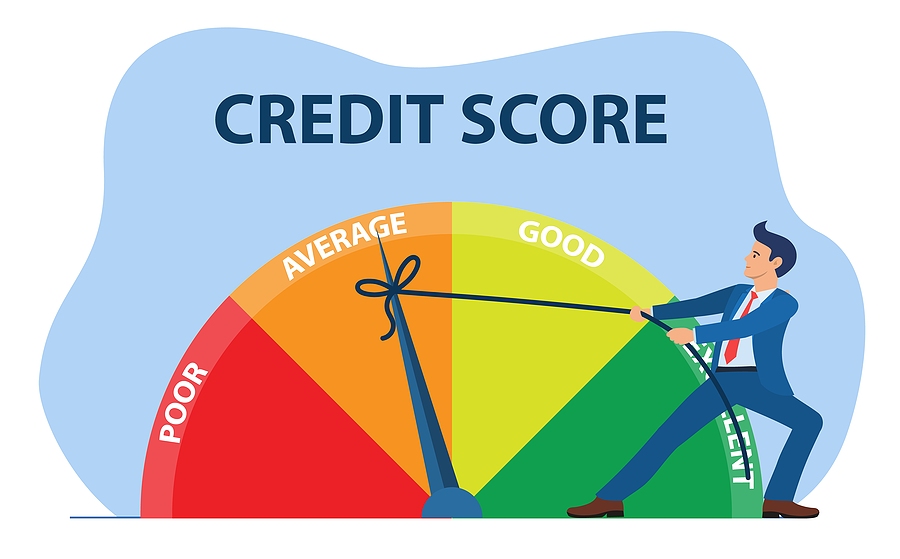Financing the Non-Traditional Property
My Real-Time Journey Into Lending For Package Properties
Article By: Derek Dominguez
Let me paint you a picture.
I’m a real estate agent, and I have found myself representing a listing with so much investment potential. My listing has FIVE rentable units on ONE parcel—making this a Package Property™. You know, those multi-parcel, multi-door deals that aren’t your traditional real estate transactions.
Sounds like a solid opportunity, right? Well, yes it is, but there’s a catch. My listing has mobile homes on it.
Since taking on this listing, I am finding out in real time how difficult it can be for someone to acquire financing for this type of purchase. I’ve been on the phone, digging on the internet, asking peers, and there’s been a lot of “I don’t know, it might be hard to get financing for that” or “Yeah, that’s going to be a tough one”.
In reality, when it comes to lending for Package Properties™—especially unconventional ones like mine—it’s a whole different beast. And that’s exactly why I’m writing this blog.
I want to take you along for the ride. Whether you’re an investor, an agent, or just someone curious about how the financial side of these deals work, I’m sharing what I’m learning in real-time so you don’t have to go through it blindly.
Here’s what I’ve found.
Why Financing Package Properties Can Be So Complicated
Here’s what I’ve found as I started peeling back the layers:
- Traditional loans aren’t built for multi-property deals. They’re made for one home, one parcel, one buyer. If you show up with three houses and a trailer on two different parcels, banks hit the brakes.
- Every property in the package must “fit.” If even one unit is off—like a mobile home without a foundation—it can tank the whole deal.
- Mobile homes are their own headache. If they’re not on a permanent foundation or the title hasn’t been retired, lenders often consider them personal property. And they don’t want to finance that.
- Residential and commercial lending rules don’t always align. Once you cross that magic number of 5 units, things get murky. Higher down payments, income-based appraisals, stricter requirements.
- There’s no standard process. Every lender plays by their own rules. What works with one might be a no-go with another.

A Quick Note on Mobile Homes and “Retiring the Title”
If you’re like me, you might not have realized that mobile homes start out titled like vehicles—not houses. Until you go through the process of placing them on a permanent foundation and retiring the title, they’re legally considered personal property. And that’s a big deal when you’re trying to get financing.
Once a title is retired and the home is affixed to owned land, it becomes real property, which opens up the door to more traditional lending.
In my case, the mobile homes are on land that the seller owns outright, but they’re not on a permanent foundation. This left me wondering about what options I could offer my client.
Should You Convert Mobile Homes to Real Property or Leave Them As-Is?
I had to ask myself: Is it easier to pour foundations and make these mobile homes financeable as real property? Or should I just leave them as-is and find a lender willing to work with what we’ve got?
Here’s what I’ve learned so far:
Converting to Real Property
(Real property = legally considered real estate)
- ✅ More financing options
- ✅ Higher appraisals
- ✅ Easier resale
- ❌ Costly and time-consuming
- ❌ May not be feasible with zoning or permitting
Leaving Them As-Is
(Mobile homes treated as personal property = titled like a vehicle)
- ✅ Faster to market
- ✅ Less upfront cost
- ❌ Fewer lenders
- ❌ May require dual loans (land + mobile home)
- ❌ Smaller buyer pool
Honestly, I’m not too sure if there is a right or wrong answer, but I don’t want to keep adding more and more expenses on my clients plate. Additionally, obtaining permits, inspections, and filing with the state could take who knows how long. Not to mention the process of pouring concrete is very expensive and getting the mobile homes on the foundation could also be complicated.
I think for my current situation it’s best to leave the mobile homes as they are, but that still begs the question, how can someone finance this purchase?

Financing Options That Are Available
After spending hours researching and asking other professionals, here are some of the financing methods I came across. Keep in mind: Not all of these will apply to every deal, and just because an option exists doesn’t guarantee approval. It all depends on the property, the lender, and the borrower’s situation.
- Portfolio Loans – Loans made by local banks or credit unions that are kept in-house instead of being sold. These lenders often have more flexibility on terms and property types.
- DSCR Loans (Debt Service Coverage Ratio) – Loans based on how much income the property generates versus how much it costs to finance. They’re often used by investors because they don’t rely heavily on personal income.
- Commercial Loans – Common for deals with 5 or more units or mixed-use properties. These are underwritten more like business loans, using property income and expenses as the main qualifying factors.
- Hard Money / Bridge Loans – These are short-term, high-interest loans used to close quickly or bridge the gap until longer-term financing can be secured. They often come from private lenders.
- Seller Financing – The seller agrees to finance the buyer directly under agreed-upon terms. These deals can offer flexibility but require trust and legal structure.
- Dual Loans – In some cases, a buyer might finance the land and mobile homes separately. For example, they could use a land loan for the property and a chattel loan (like a vehicle loan) for the mobile homes.
These financing routes have all been used in real-world scenarios, but they come with different levels of accessibility, complexity, and risk. If you’re pursuing one, it’s important to speak directly with a lender, mortgage broker, or real estate attorney to find out what’s feasible for your specific deal. However, I do have some options that I prefer for my case.

My Top 3 Picks for Package Property Lending
Portfolio Loans
Best for: Investors who want to finance multiple doors under one loan.
- Can include diverse property types
- Works well with local banks/credit unions
- Usually requires 20–30% down
DSCR Loans
(DSCR = Debt Service Coverage Ratio)
Best for: Investors with strong cash flow but complex personal finances.
- Based on property income, not borrower income
- Works for long-term or short-term rentals
- Often used by self-employed or LLC investors
Seller Financing
Best for: Unique deals with flexible sellers.
- No bank involvement
- Good for non-conforming properties
- Flexible and fast if both parties agree
As I mentioned, these are my personal preferences based on my research, but what works for me may not work for you, so I urge you to do your own research for your specific needs!
What I’d Tell Another Agent or Investor Starting This Journey
If you’re trying to figure out how to finance a package property—especially one with mobile homes or unconventional quirks—here’s what I’ve learned so far:
- Don’t assume a lender knows what you’re talking about. Be specific and ask if they’ve actually done a deal like yours before.
- Have your details ready. Parcel info, rent rolls, condition reports—get ahead of the questions they’re going to ask.
- Be ready to pivot. If one lender says no, that doesn’t mean they all will. Keep calling. Keep learning. Keep asking better questions.
All in all, in my journey to find out how to finance package property purchases I have learned so much information that has helped me become a better real estate agent and professional. However, the biggest lesson I have learned is that you have to be willing to call and be rejected, call and be rejected, call and be rejected, and keep calling and getting rejected until you finally talk to the person who says “Yes, I can do that.” There is no better feeling than that!
And if you’re looking for a better way to navigate deals like this—whether you’re an agent or investor—that’s exactly why we built P3. We’re not just another listing platform. We’re here to make Packaged Property™ investing more accessible, less confusing, and honestly, more doable for everyone, no matter the level of experience or knowledge.
Also, if you happen to be interested in seeing my listing that I wrote this blog about, click here!
https://www.flexmls.com/share/C1tJn/1501-1503-County-Road-14-Lamesa-TX-79331





